
Often, the foods and beverages people love the most are unhealthy — soda, for example, can be killing you in at least 10 different ways — and should be consumed only once in awhile. Coffee, however, appears to be a rare exception. One of the most popular beverages in the United States, coffee also has a number of health benefits — which, in some cases, increase as consumption goes up.
24/7 Tempo reviewed medical research findings from a range of journals and sources to identify 18 health benefits of drinking coffee. The benefits range from an improved mood and reduced risk of depression to a reduced risk of heart disease, the leading cause of death in the United States.
Coffee’s many health benefits are derived from a number of the drink’s properties, not the least of which is its caffeine content. Every morning, millions of Americans start their day with a cup of joe to wake up and feel more alert. In addition to waking you up, coffee offers additional benefits.
Caffeine, whether in coffee or tea, has been linked to significant reduced risk of a number of diseases and conditions, including depression, Parkinson’s disease, multiple sclerosis, and Alzheimer’s disease, which causes more than 350 deaths per 100,000 people a year in several U.S. states.
Several other ingredients, more unique to coffee than tea, also have health benefits of their own. For example, chlorogenic acid, an antioxidant found in coffee beans, has been shown to prevent retinal damage that can lead to vision loss. Additionally, coffee appears to reduce the risk of liver cirrhosis, regardless of caffeine content.
However, many of coffee’s purported medical benefits have some serious caveats. For many diseases on this list, including type 2 diabetes and liver cancer, the risk appears to decline as coffee consumption goes up. And as the Mayo Clinic notes, more than four cups of coffee a day can cause irritability, upset stomach, migraine headaches, and muscle tremors — side effects that may outweigh any potential benefit. Drinking a lot of coffee in the afternoon can also be a symptom of a serious health problem.
Click here to see 18 reasons to drink coffee for your health

1. Protection against Parkinson’s disease
According to a study published in 2007 by the Journal of the American Medical Association, caffeine has an inverse relationship with Parkinson’s disease. Researchers found that coffee drinkers are less likely to develop the neurological disorder than people who abstain from caffeine. The study’s findings were corroborated by a similar 2014 study in Sweden.
[in-text-ad]
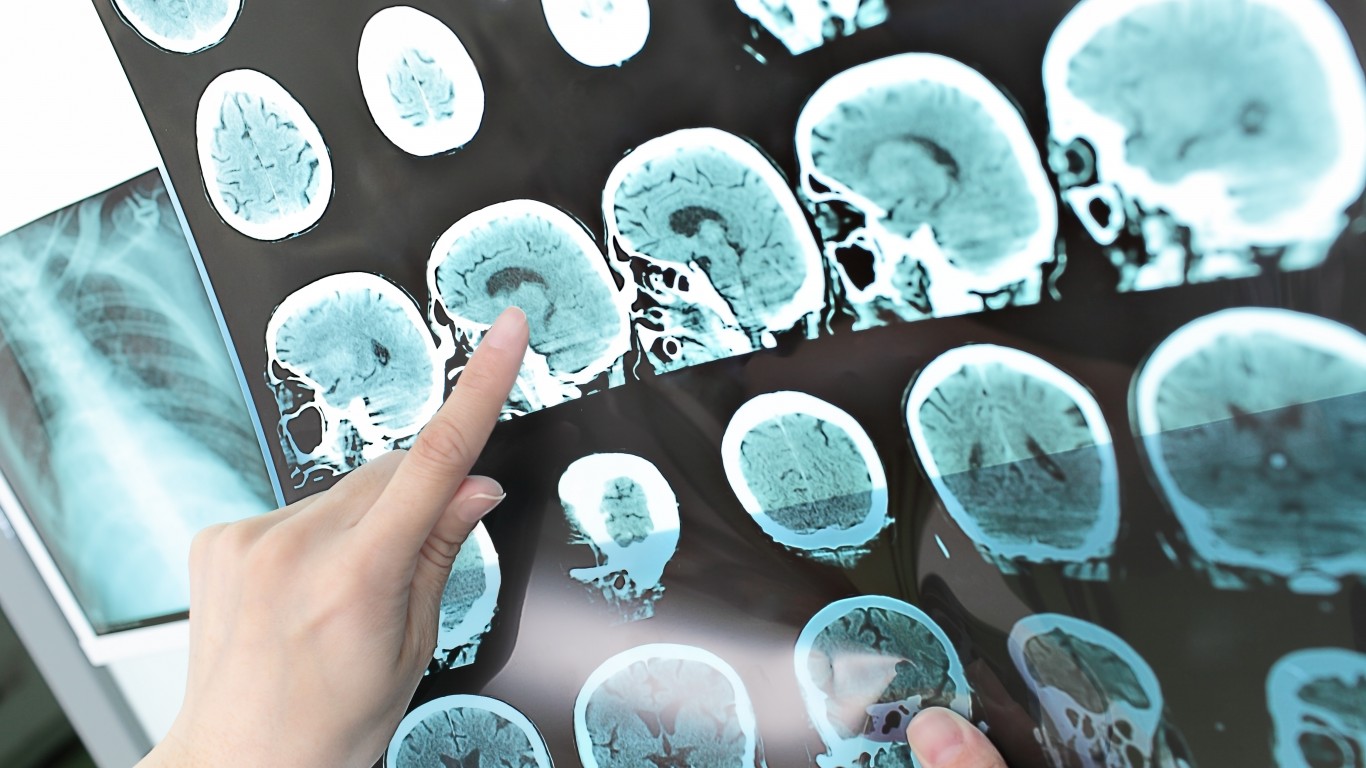
2. Reduces risk of multiple sclerosis
Multiple sclerosis is a debilitating disease in which the body’s immune system attacks nerve cells, eventually causing a disruption in the brain’s ability to communicate with the rest of the body. A study published in the Journal of Neurology, Neurosurgery, and Psychiatry revealed that increased coffee consumption reduces the likelihood of developing MS. Researches concluded the findings were likely attributable to caffeine’s neuroprotective properties.

3. May protect against melanoma
In addition to sunscreen protecting against melanoma, the most dangerous form of skin cancer coffee may provide some defense as well. According to a study published in 2014 by the American Association for Cancer Research, those who drank four or more cups of coffee a day had a 20% reduced risk of melanoma compared to non-coffee drinkers. People should probably still continue to use sunblock as well, though.

4. Reduces pain after a workout
Exercise is an important component of a healthy lifestyle, but it is often accompanied by muscle pain the day after a workout. However, a study out of the University of Georgia, among others, suggests that caffeine consumed prior to a workout can reduce muscle soreness by nearly half after working out.
[in-text-ad-2]
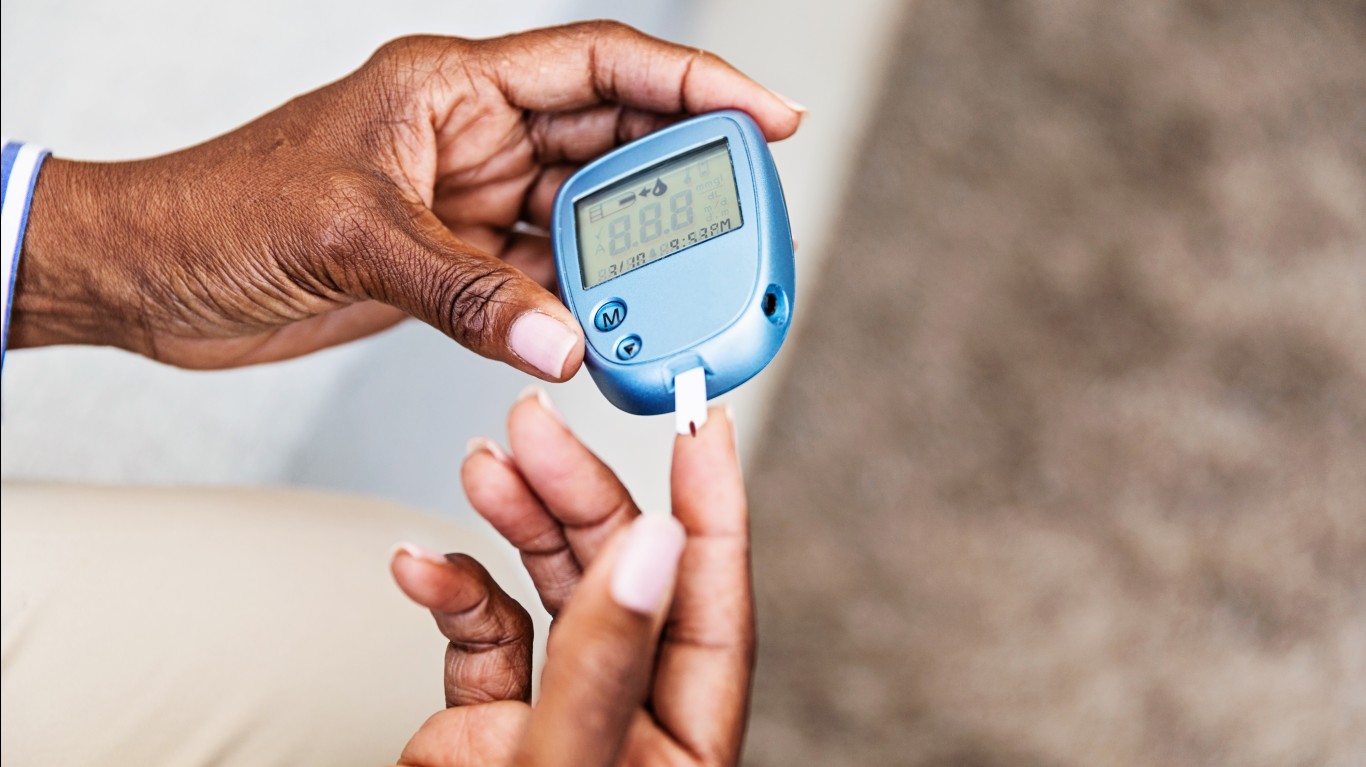
5. Lowers risk of type 2 diabetes
Coffee contains certain minerals and active compounds that can significantly reduce the risk of type 2 diabetes. An 11-year study of nearly 29,000 postmenopausal women found that six or more cups of coffee a day reduced the likelihood of the disease by 22%. These are the 10 warning signs you might have diabetes.
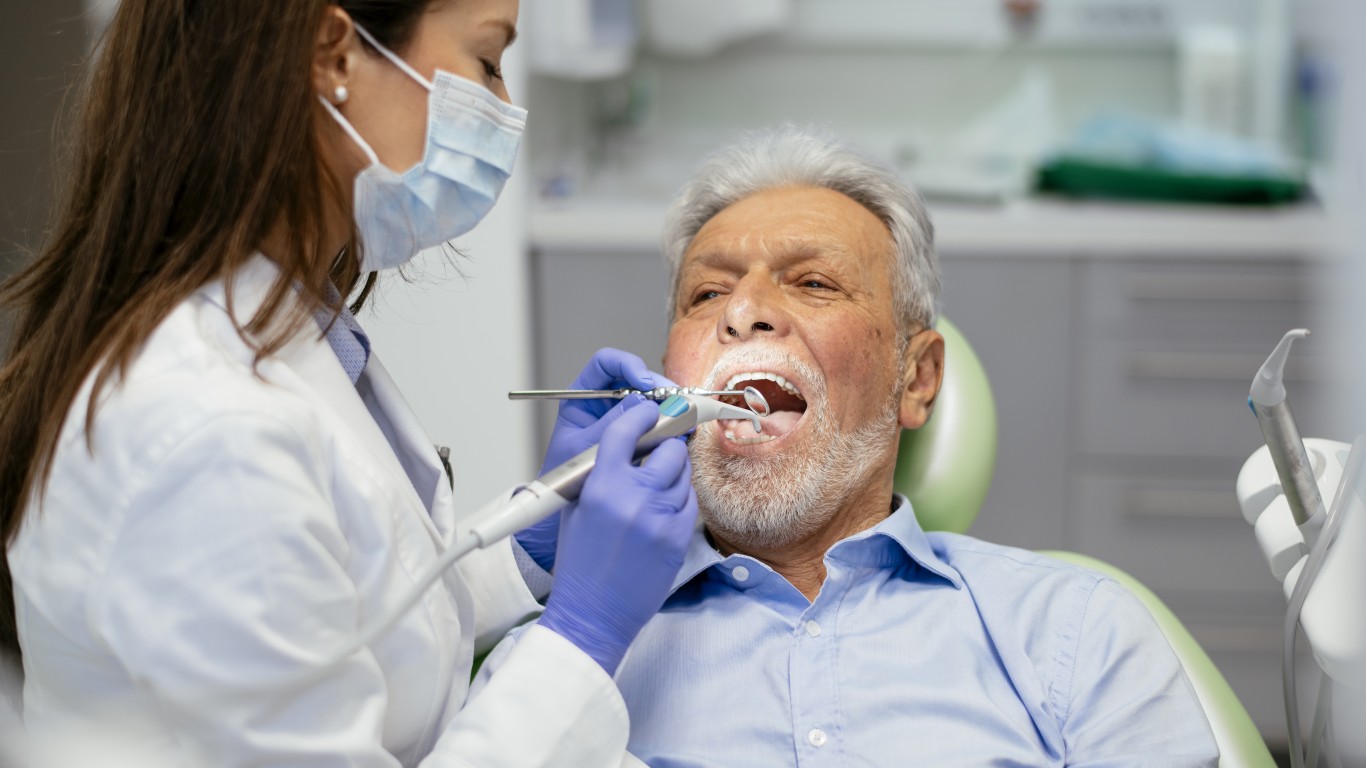
6. Black coffee prevents cavities
In a study controlling for other factors that can impact the likelihood of cavities, such as diet and oral hygiene, hot black coffee was shown to reduce the risk of tooth decay. Stay away from sweeteners and cream, however. If added to coffee, they negate any oral health benefits and often can be detrimental to dental health.
[in-text-ad]
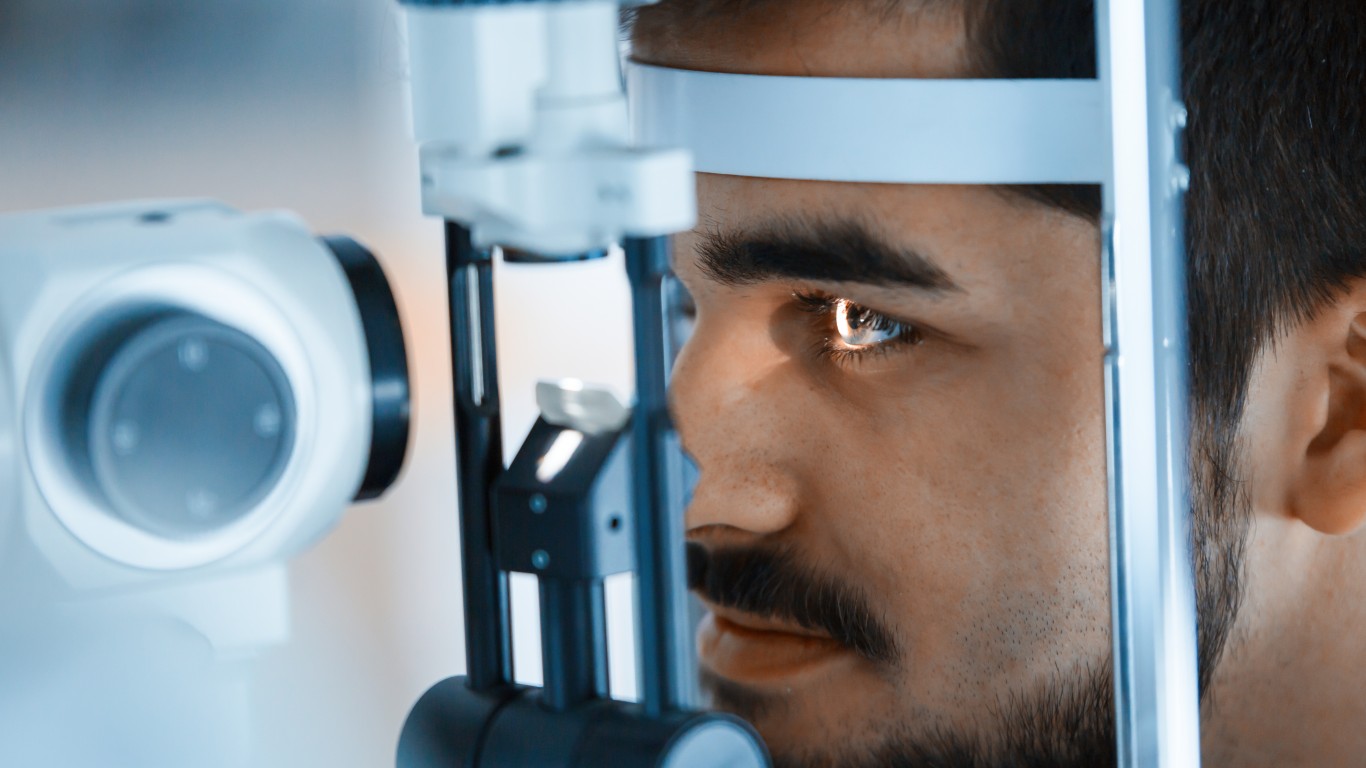
7. May prevent retinal damage
A progressive disease, retinal degenerative disease is often characterized by worsening vision loss and eventually total blindness. While causes of the condition are unknown, a study at Cornell University concluded that chlorogenic acid, a chemical found on coffee beans, may help prevent retinal degeneration.

8. Lowered risk of Alzheimer’s disease
As the global population lives longer, Alzheimer’s will become more and more common. Incidence of the disease in the United States is expected to as much as triple by 2050. A study published in the European Journal of Neurology found that study participants who consumed the equivalent of roughly two cups of coffee daily for 20 years were significantly less likely to develop the disease. A recent study has found that mushrooms can significantly reduce the chances of developing cognitive impairment.

9. Protects against cirrhosis of the liver
Cirrhosis is damage to the liver that can lead to serious health conditions and death. Many conditions and diseases can lead to cirrhosis, but the most common cause is sustained alcohol abuse. Several studies have found that regular consumption of coffee reduces damage to the liver as well as the likelihood of death for those who have developed cirrhosis.
[in-text-ad-2]

10. Reduces suicide risk and depression
Many people drink coffee for its caffeine content, and caffeine has been shown to have an inverse effect on depression. A study controlling for a number of variables, including alcohol use, drug use, stress, and marital status, found that female coffee drinkers were far less likely to commit suicide than those who did not drink caffeine.

11. Reduces risk of heart disease
When it comes to heart disease, there is no better prevention tool than a healthy diet and an active lifestyle — there are at least 28 dangerous things doctors link to the condition. Also, according to a study published in 2015, moderate coffee consumption is linked to a lower prevalence of coronary artery disease.
[in-text-ad]
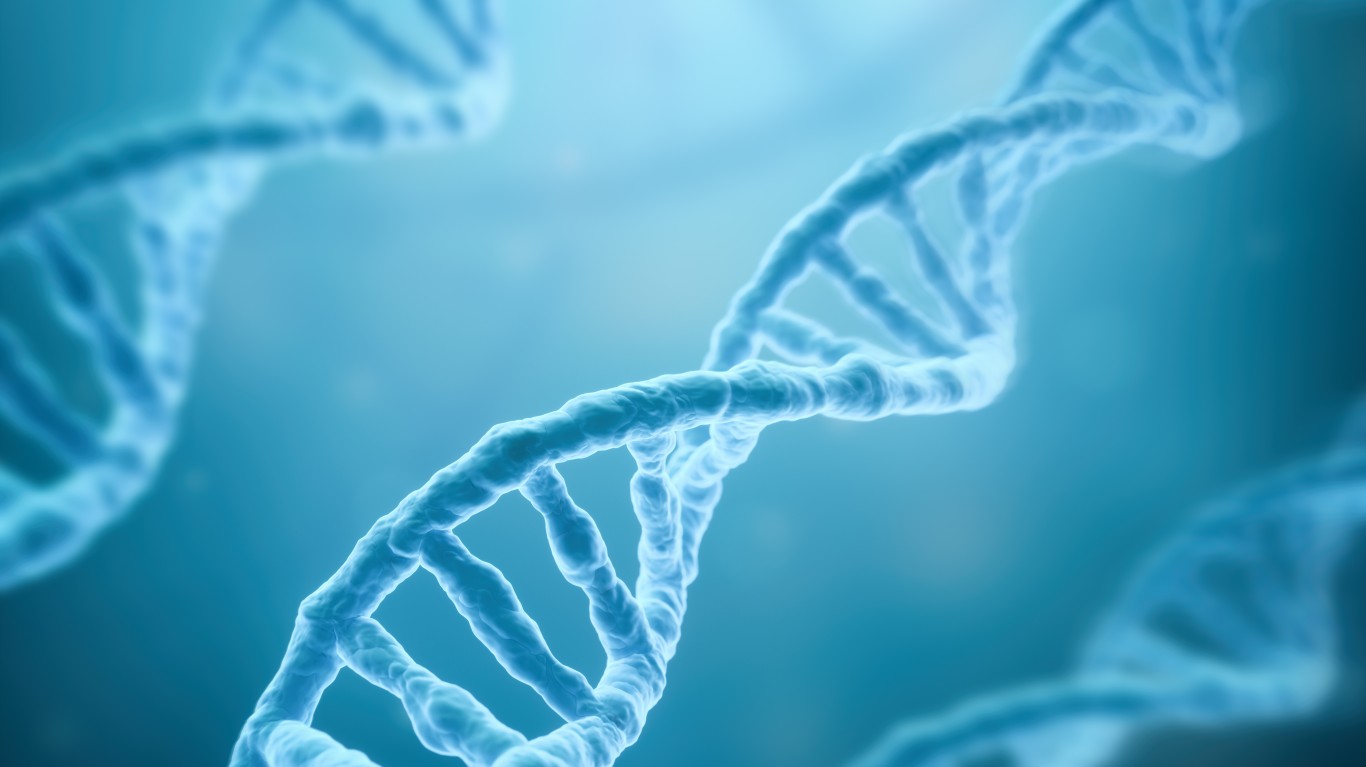
12. Strengthens DNA
Spontaneous DNA strand breaks can be a sign of poor health, the most serious consequences of which can be cancer and more rapid cell aging. However, a 2015 study published in the European Journal of Nutrition found DNA strand breaks occur less frequently among coffee drinkers.
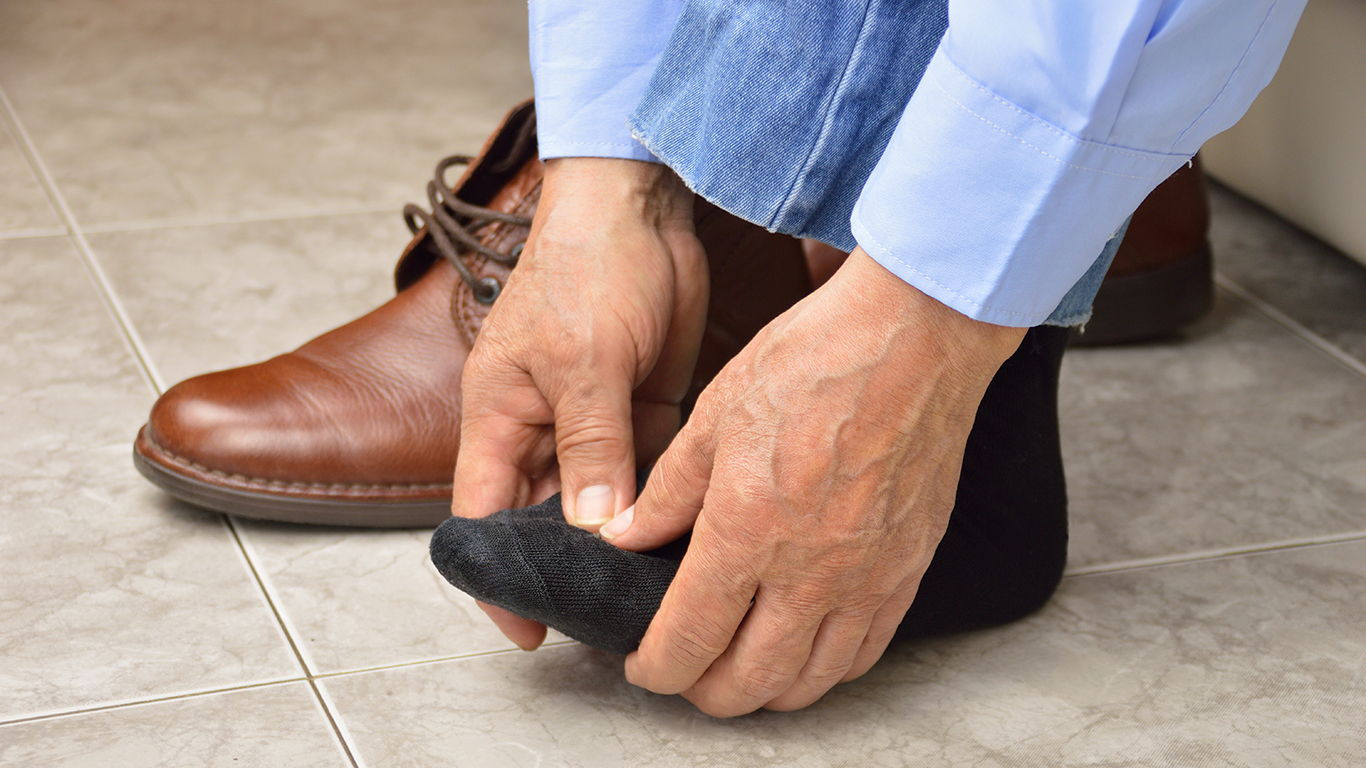
13. Reduces risk of gout
Gout is a form of arthritis that usually develops in the feet, creating persistent, sharp pain and swelling. A large study of more than 45,000 participants published in 2007 by the American College of Rheumatology found that consuming coffee on a regular basis significantly reduces the likelihood of developing the ailment in men.

14. Reduces heart attack mortality risk
Coffee can not only decrease an individual’s risk of developing coronary artery disease, but it can also reduce the risk of mortality among those who suffer a heart attack. Heavy coffee drinkers who have suffered a heart attack have a significantly reduced risk of mortality compared to those who drink no coffee.
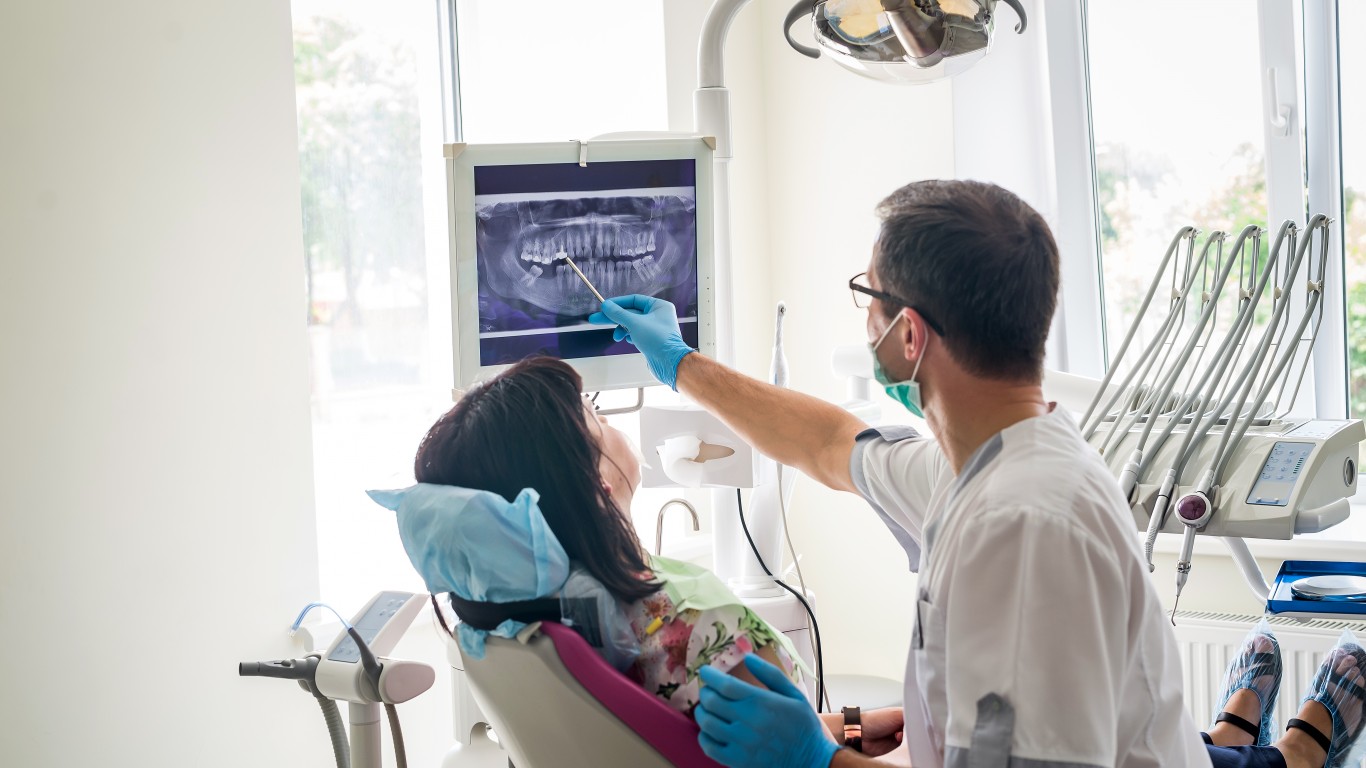
15. May protect against periodontal disease
In a study conducted by researchers at Boston University, coffee was found to be associated with a significant reduction in the number of teeth losing bone mass among 1,152 males. While there is no substitute for regular brushing, risk of periodontal disease and resulting tooth loss may be decreased with regular coffee consumption.
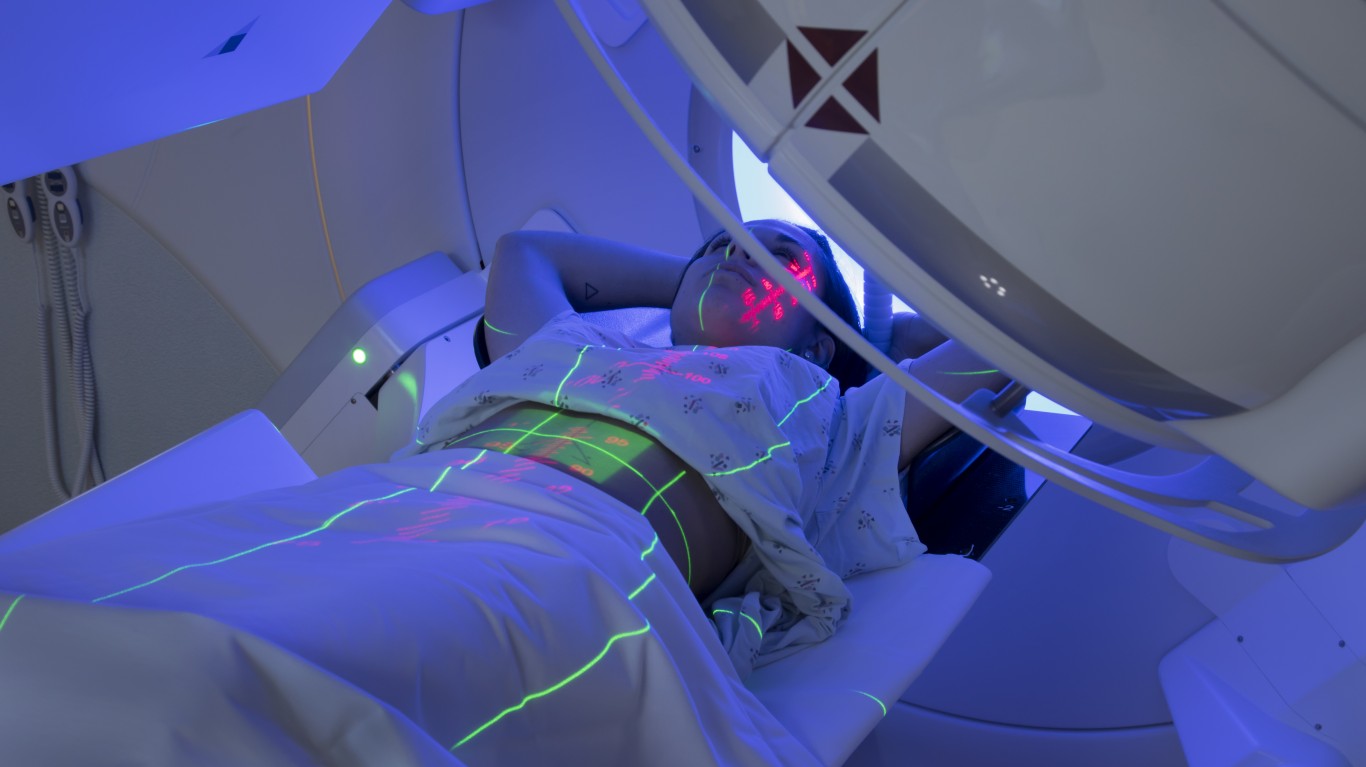
16. Reduces liver cancer risk
According to a study conducted by researchers at USC Norris Comprehensive Cancer Center, adults who drink coffee on a daily basis can reduce their risk of liver cancer by 29%. The study’s findings are corroborated by a number of similar studies. In a recent study by University of Southampton and the University of Edinburgh, researchers found that people who drank one cup a day had a 20% lower risk of liver cancer, those who drank two cups reduced their risk by 35%, and those who drank five cups cut their risk by 50%.
[in-text-ad-2]
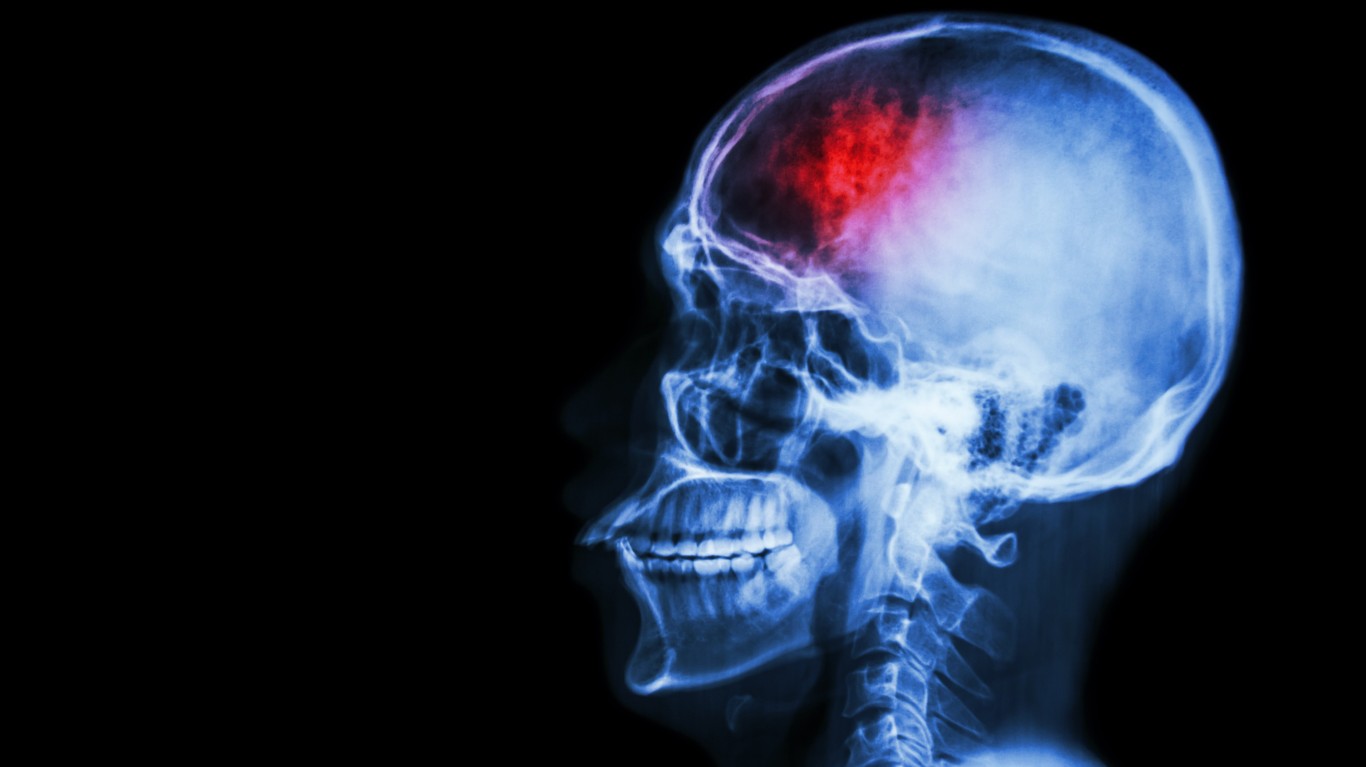
17. Reduces risk of stroke
A study published in 2009 found an association between coffee consumption and lower risk of stroke. The long-term study followed over 80,000 nurses and found that women who reported drinking at least two cups of coffee a day reduced their risk of stroke by 20%, regardless of pre-existing risk factors such as high blood pressure, which is one of several serious damages to the body caused by lack of sleep.
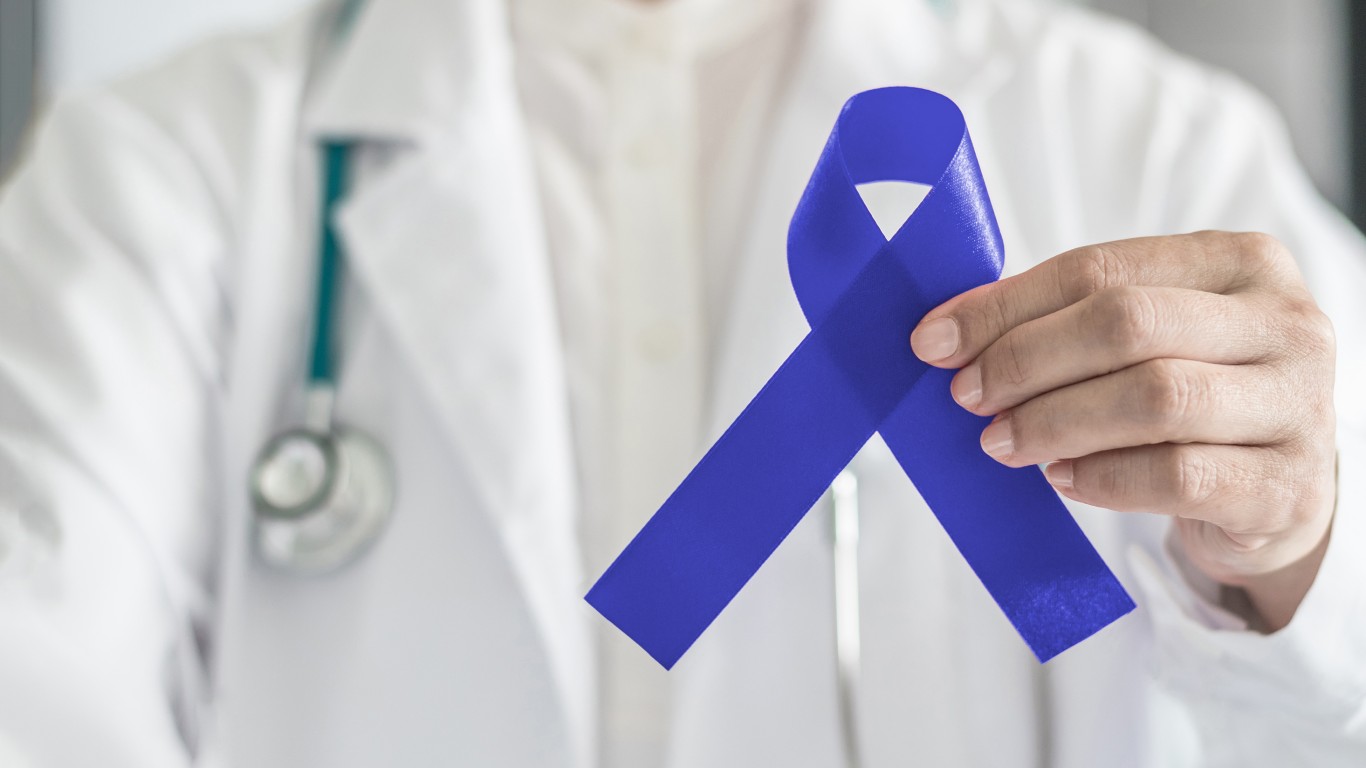
18. Reduces risk of colorectal cancer
According to a study of over 5,100 men and women diagnosed with colorectal cancer and another 4,000 people with no history of colorectal cancer conducted by researchers at the University of Southern California, coffee consumption appears to reduce the risk of colorectal cancer. Even when controlling for other factors, such as family history and diet, the study suggests that cancer risk declines as coffee consumption goes up — which can turn out to be a small expense that can add up to an overspending issue, depending on where you live.
Are You Ahead, or Behind on Retirement? (sponsor)
If you’re one of the over 4 Million Americans set to retire this year, you may want to pay attention.
Finding a financial advisor who puts your interest first can be the difference between a rich retirement and barely getting by, and today it’s easier than ever. SmartAsset’s free tool matches you with up to three fiduciary financial advisors that serve your area in minutes. Each advisor has been carefully vetted, and must act in your best interests. Start your search now.
Don’t waste another minute; get started right here and help your retirement dreams become a retirement reality.
Thank you for reading! Have some feedback for us?
Contact the 24/7 Wall St. editorial team.

 24/7 Wall St.
24/7 Wall St.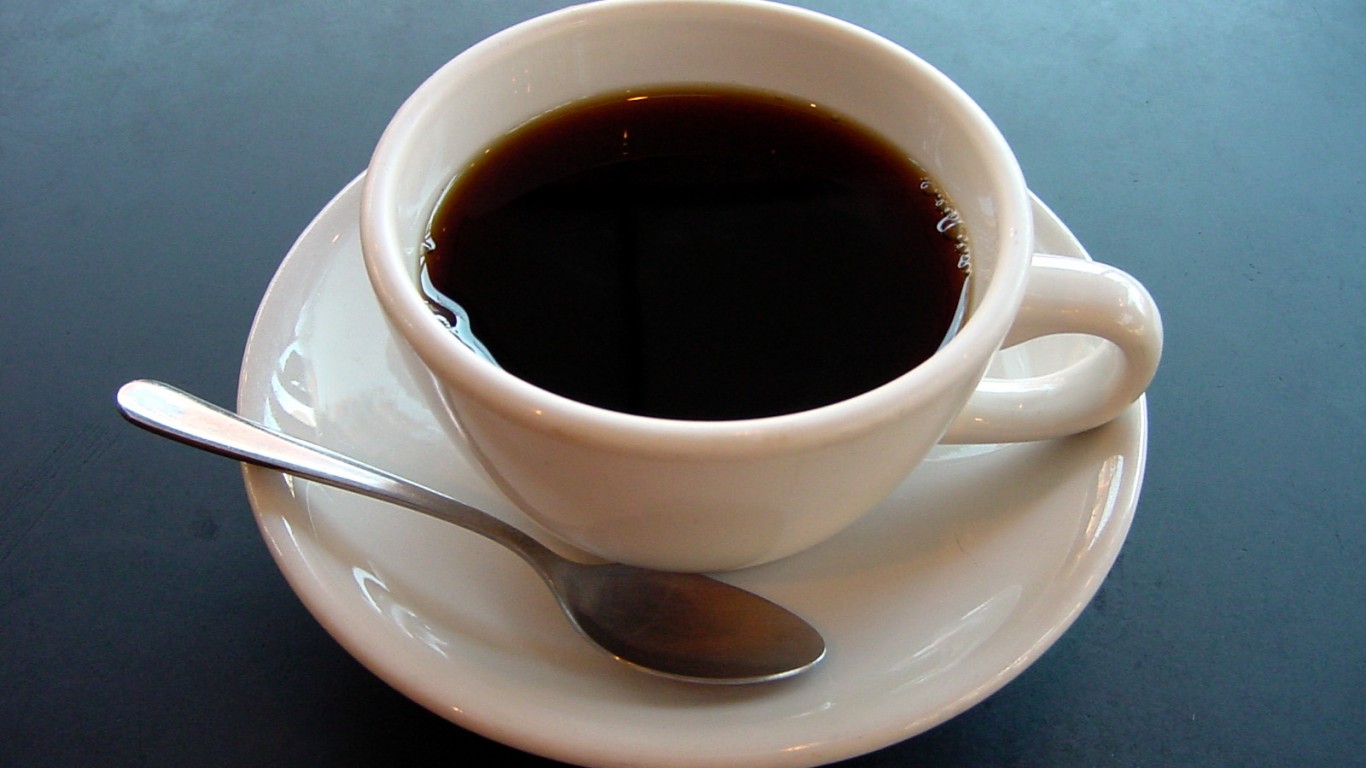 24/7 Wall St.
24/7 Wall St.



